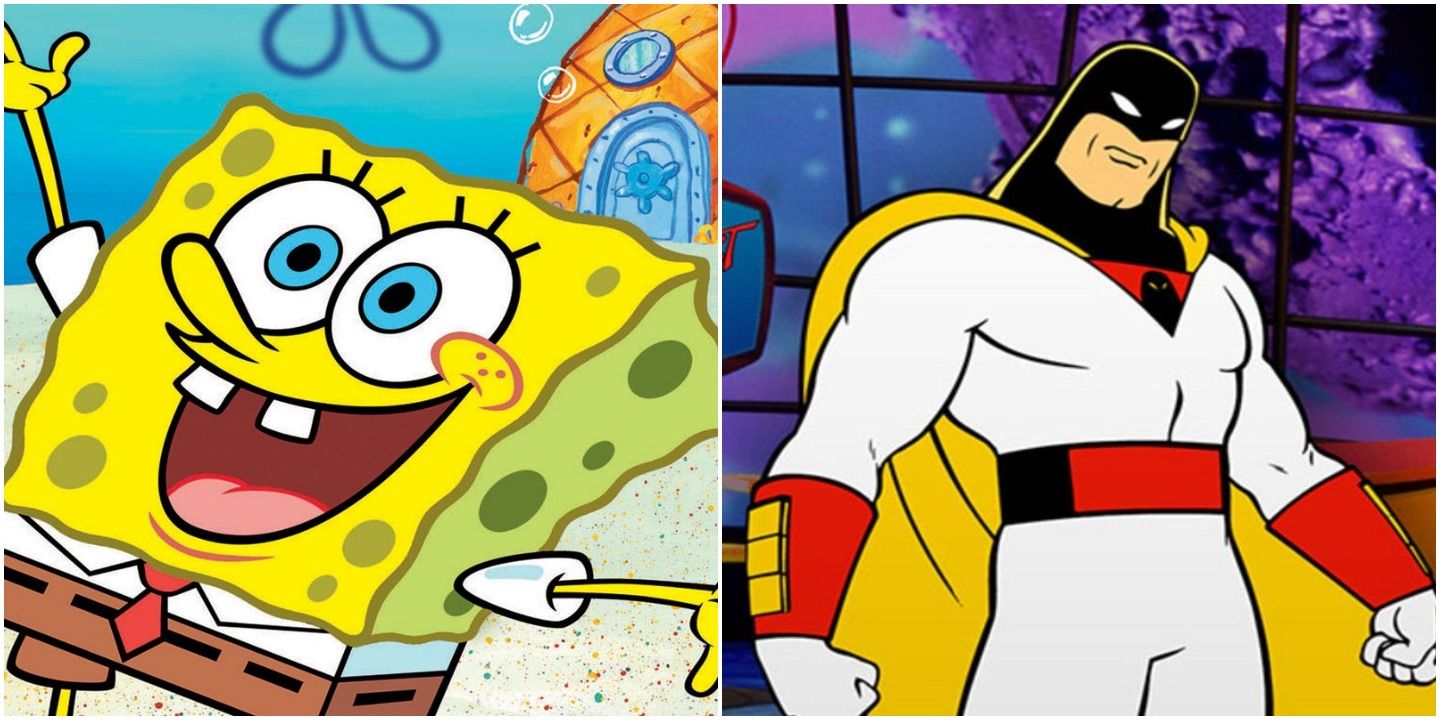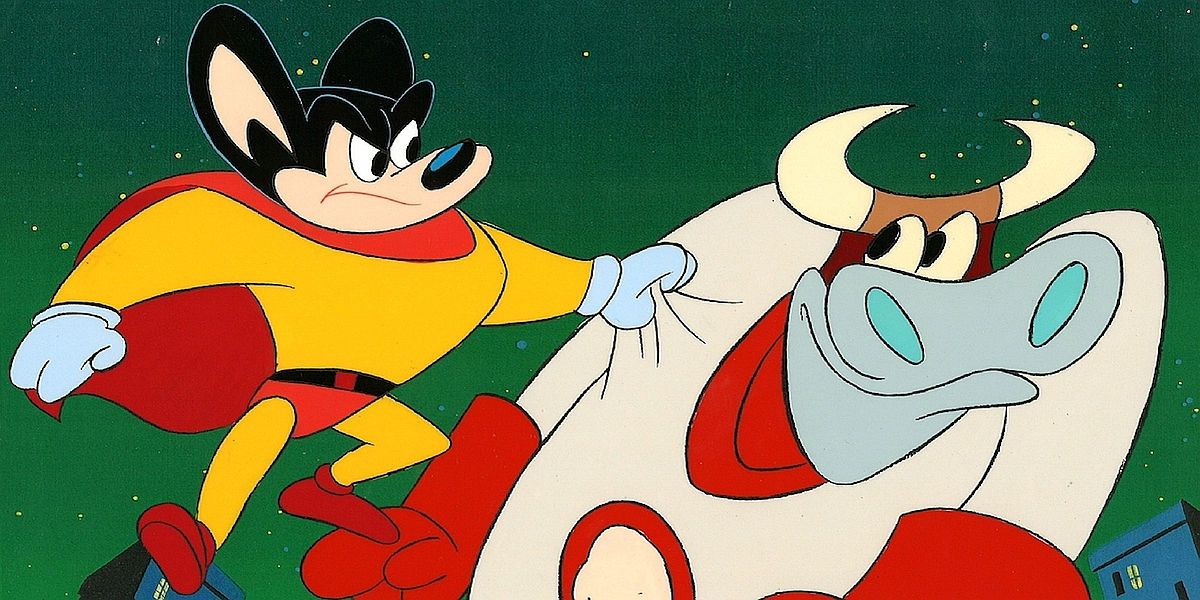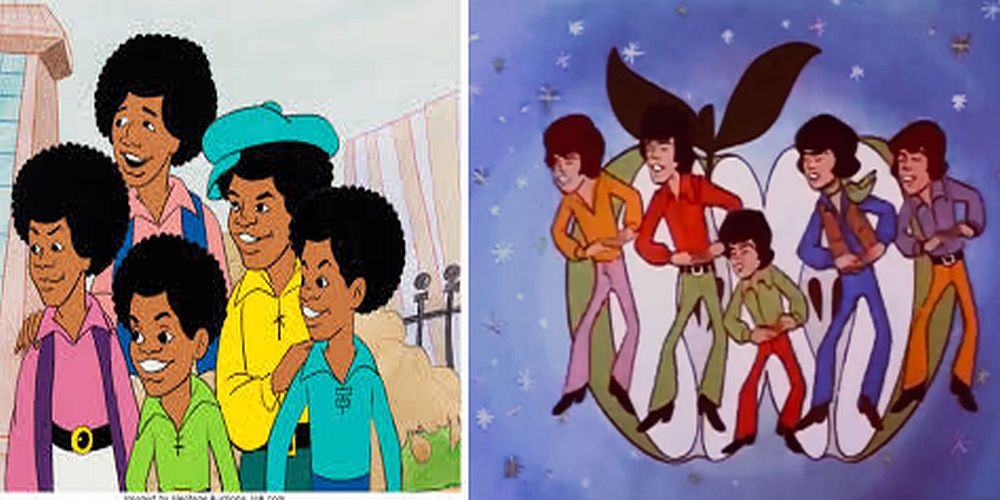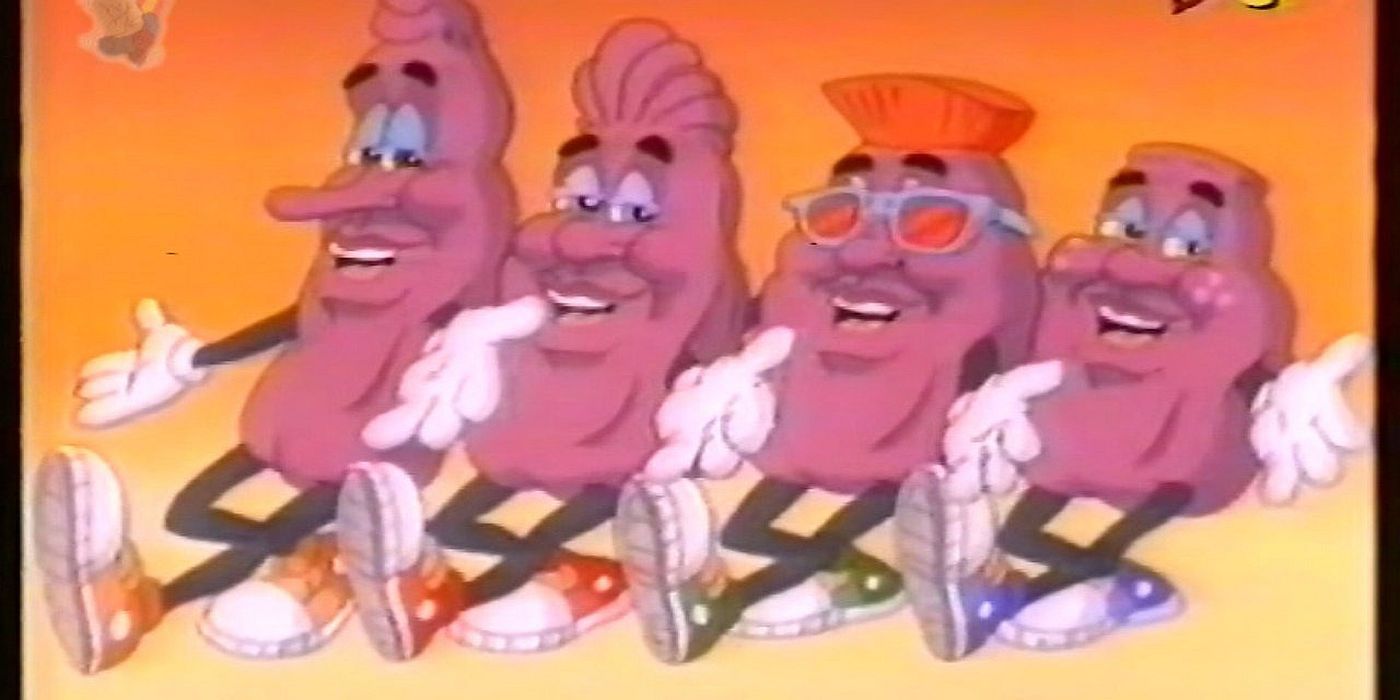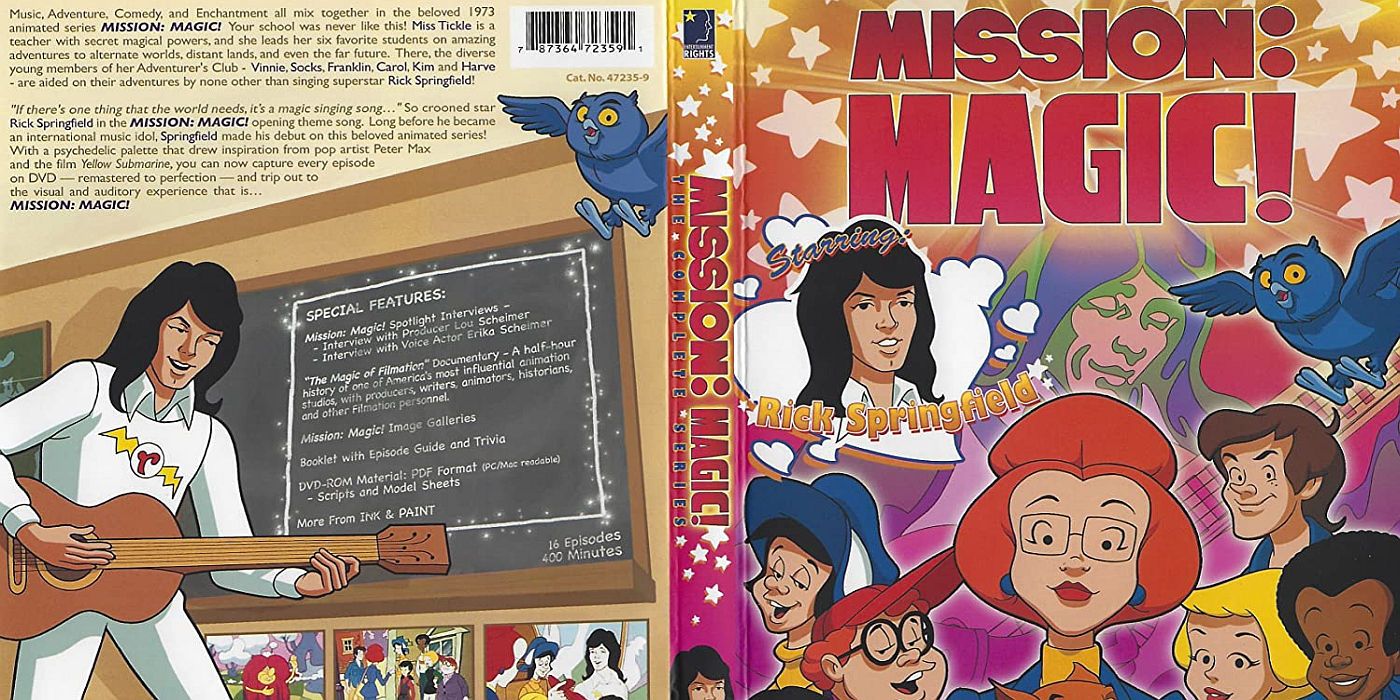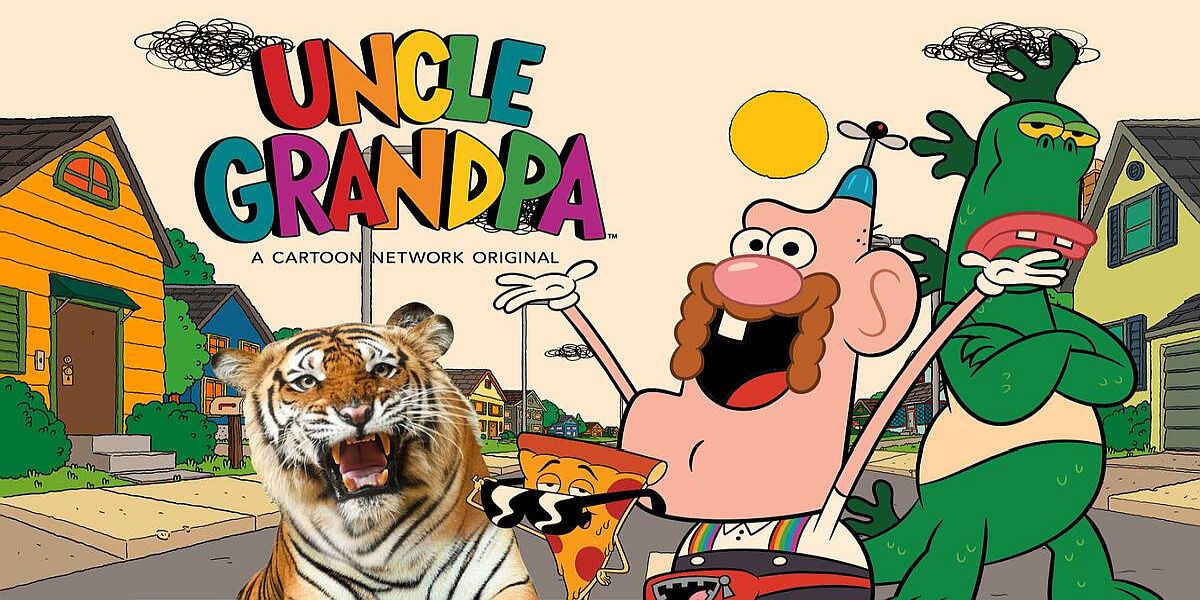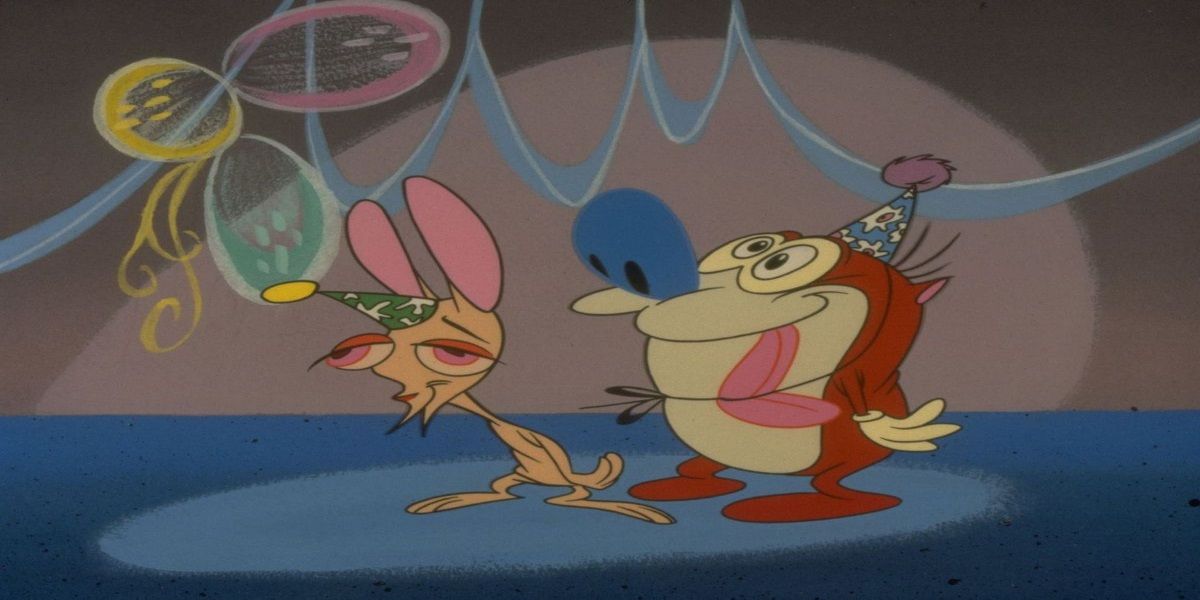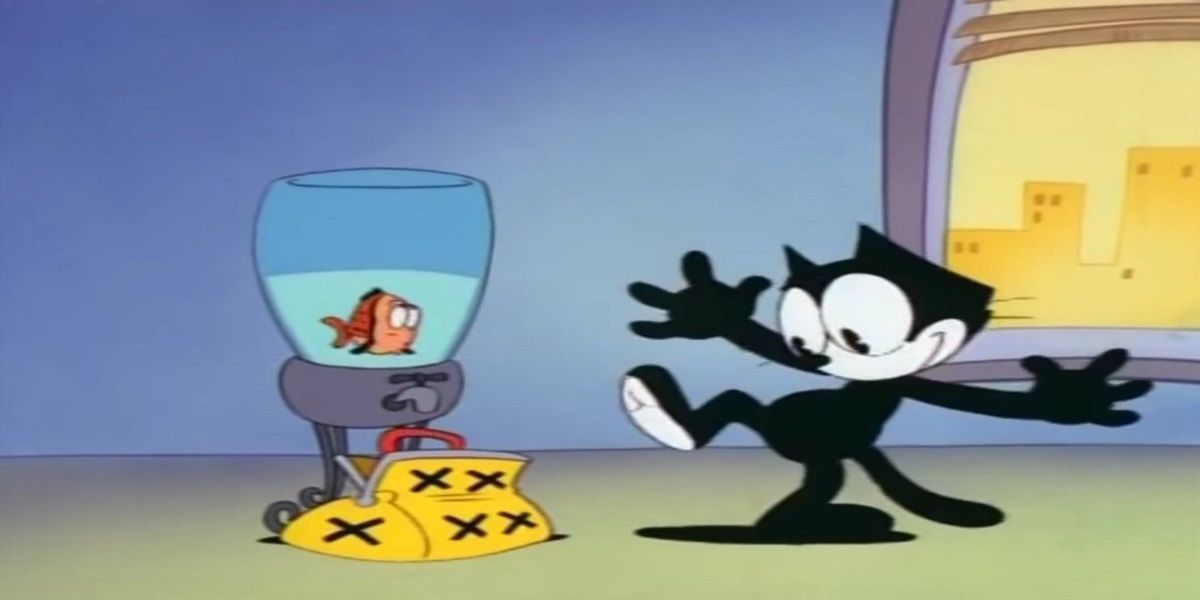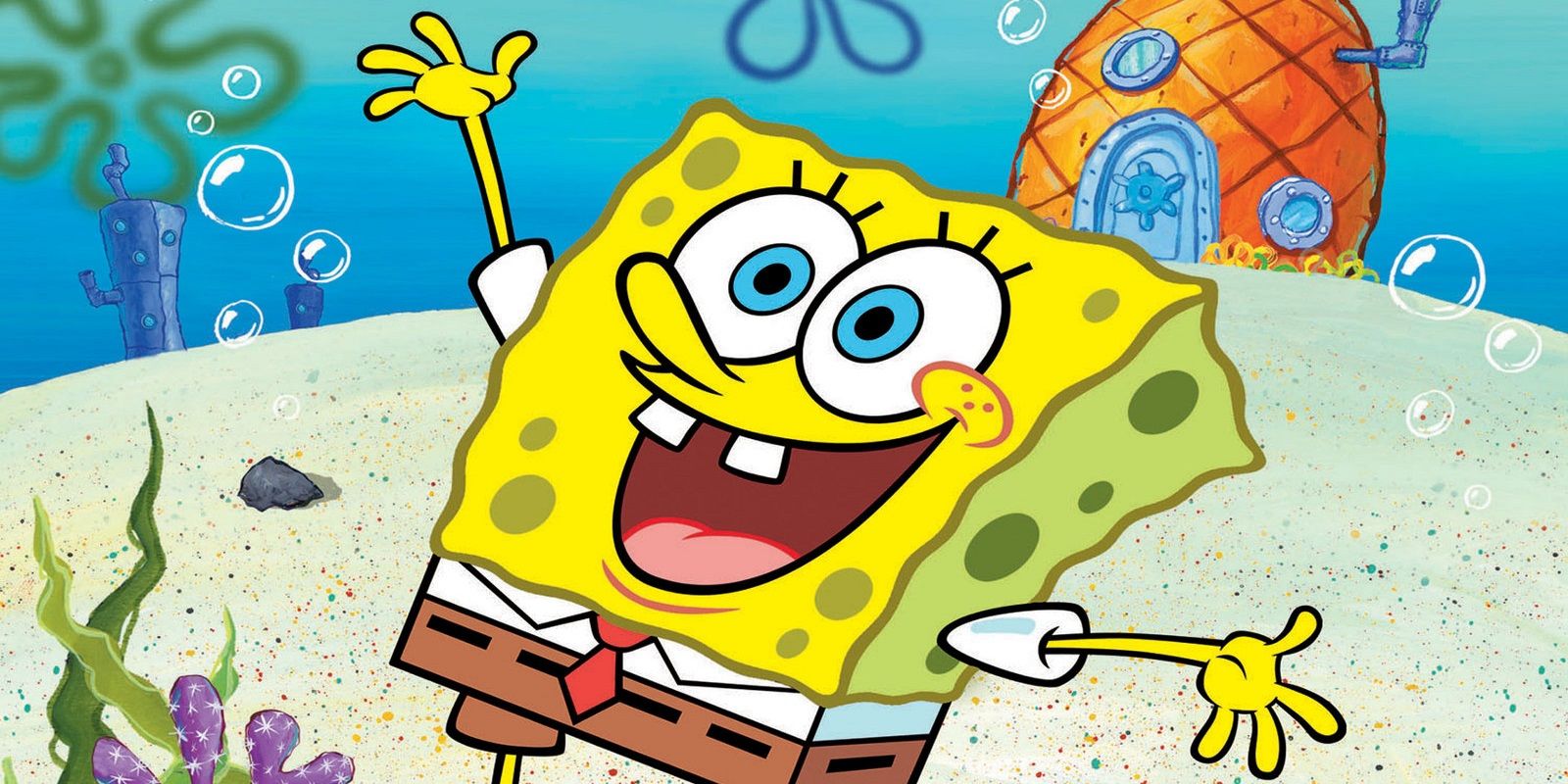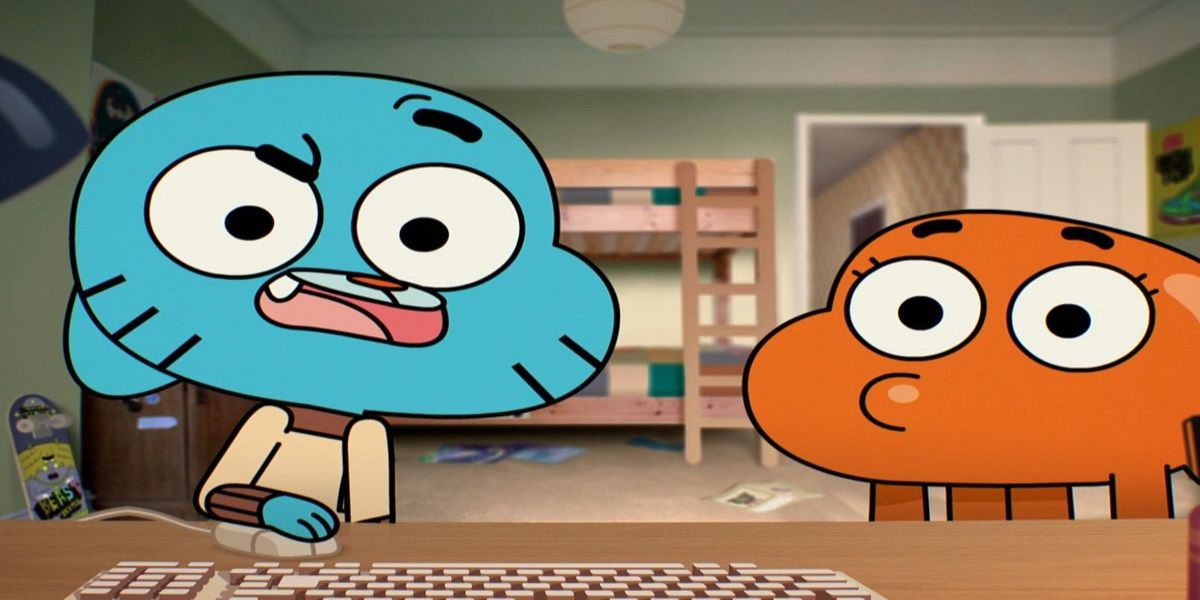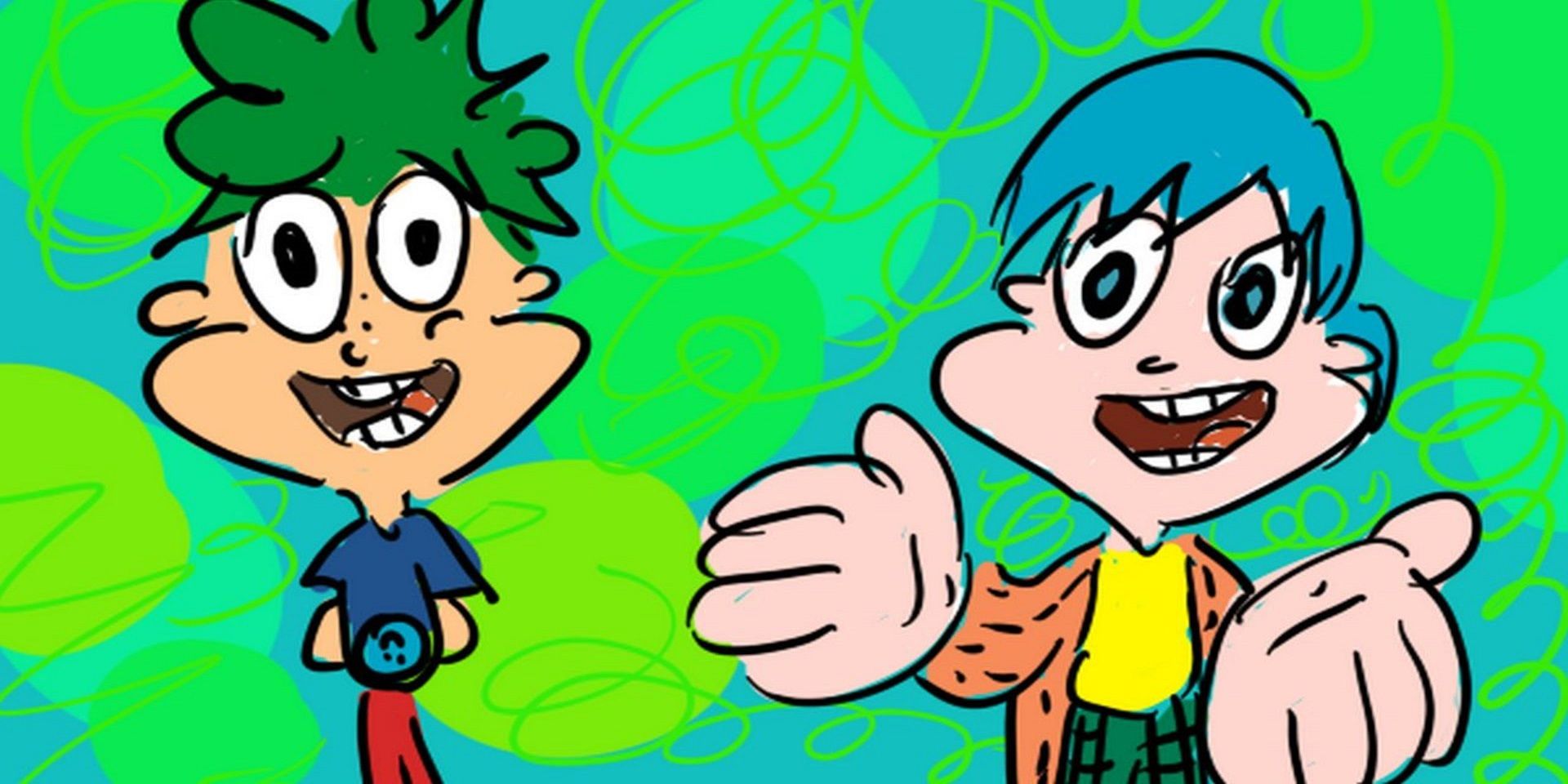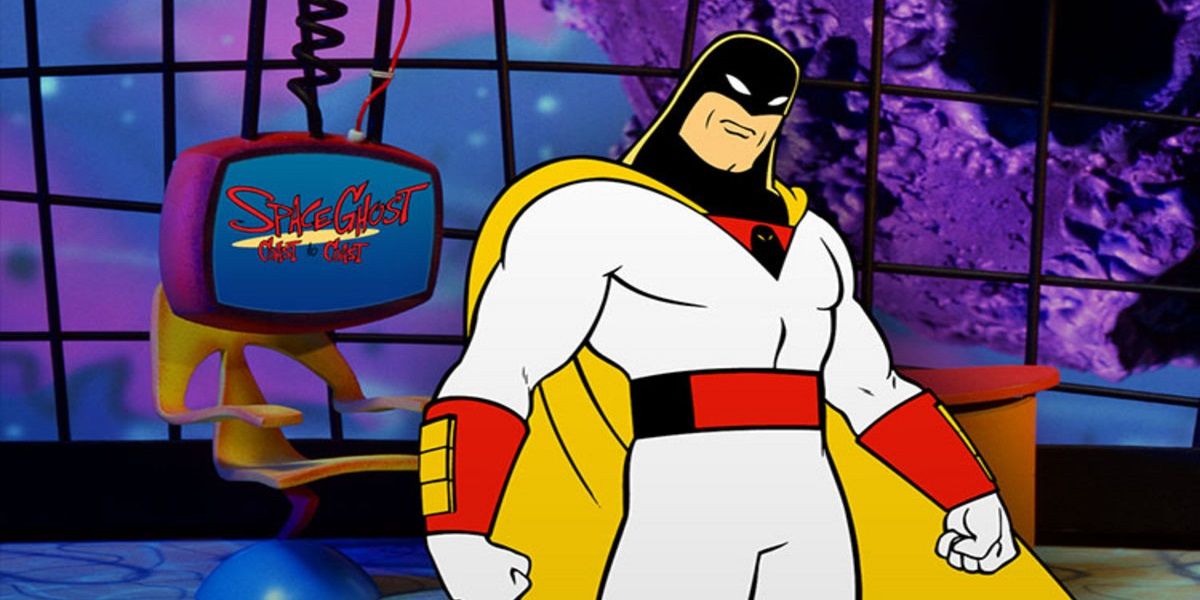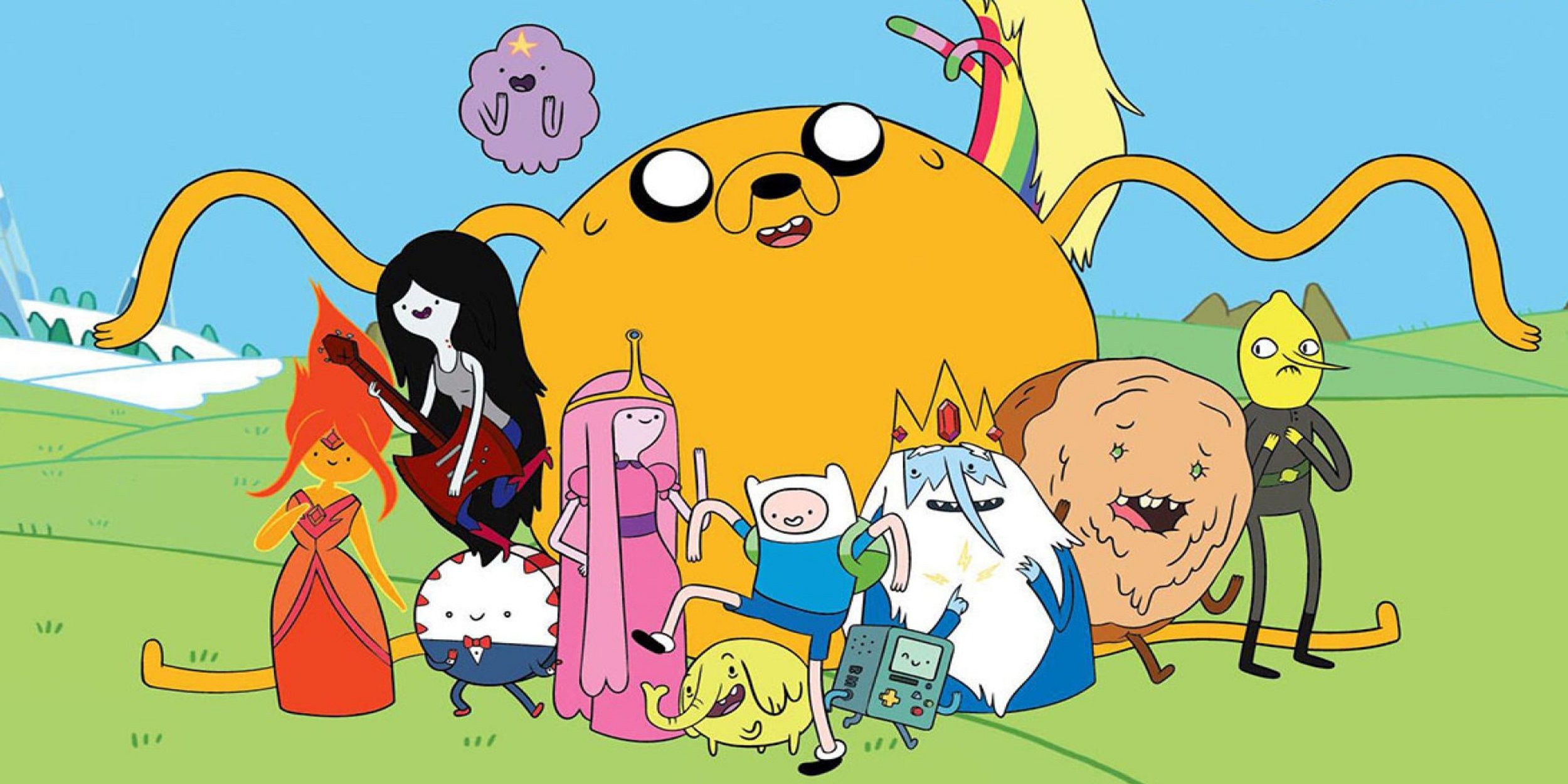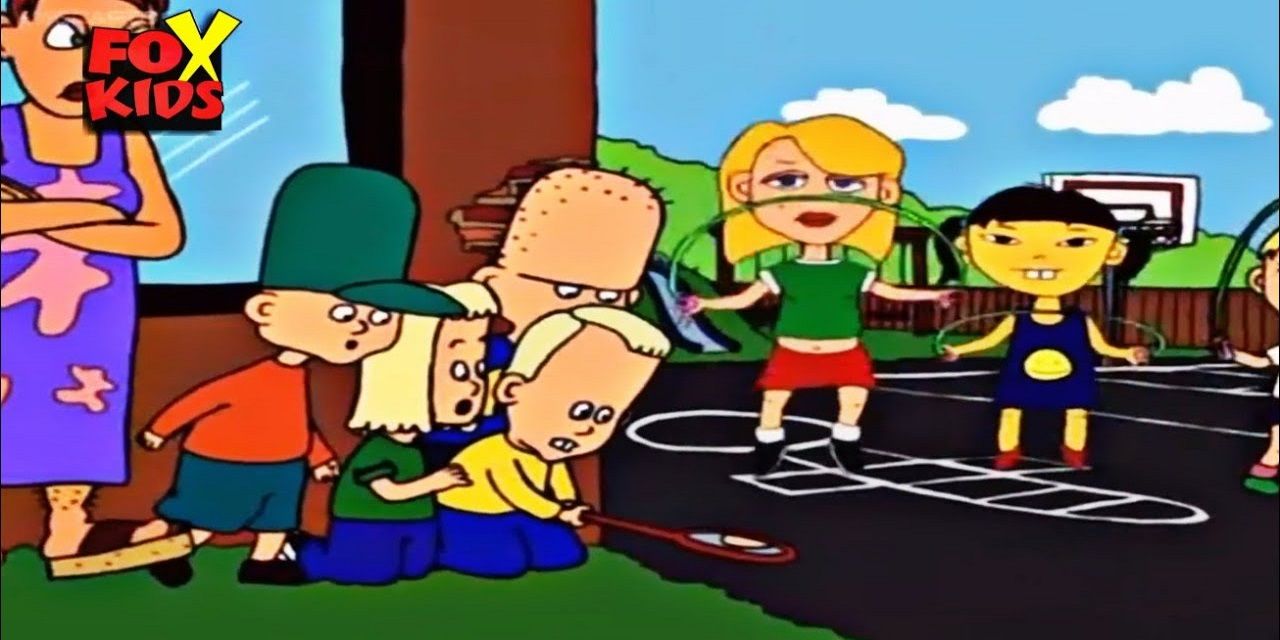As an impressionable child of the 80s and 90s, there was nothing quite like plopping down in front of the TV to watch cartoons. Admit it: with all the bright, vibrant, flashy colors and sounds, the experience was almost akin to young, developing brains ingesting a ton of psychedelic drugs and embracing the stimulating, mind-altering effects of an illegal substance.
Indeed, it’s safe to say that cartoons were (and are) the juvenile, legal form of LSD for impressionable young minds. Here are some of the best examples of animated shows that replicate the effects of psychedelic drugs.
Updated on October 25th, 2020, by Richard Keller: Children's animation was a straight forward process for many decades. That changed toward the end of the 1960s when psychedelic influences began to seep into these programs. Some of the experiments resulted in success, others made kids quickly change the channel. Here are a few more cartoons that were a mental trip.
Mighty Mouse: The New Adventures
The original Mighty Mouse shorts were already strange. Instead of a typical animated series, they were mini-musicals. Creator Ralph Bakshi took it to a new level with his Saturday morning revival on CBS.
Released in 1987, it was a strange mish-mash of new-style animation and segments from the 1940s cartoons. It gained cult status when one episode showed M.M. inhaling the remnants of a crushed flower. To some, this allegedly represented Mighty's use of drugs.
The Jackson 5ive & The Osmonds
Rankin/Bass, the production company that gave viewers hours of Christmas goodness, delved into the world of Saturday morning cartoons at the start of the 1970s. Two of the most popular were based on the top boy bands of the time — The Jackson 5 and The Osmonds.
The fact they were animated versions of pop stars isn't what made The Jackson 5Five and The Osmonds psychedelic. It was their musical numbers. The backgrounds they used felt similar to the trippy works of Vince Collins.
The California Raisin Show
Claymation animator Will Vinton hit a gold mine when he was asked to create a TV ad campaign for California Raisin Advisory Board. The group of dried grapes he created became a huge hit in the late 1980s. As that decade came to a close, his creations became part of a Saturday morning cartoon. The clay-based raisins were strange enough. The two-dimensional versions were even weirder
Mission: Magic!
Before General Hospital and Jesse's Girl, a teenage Rick Springfield tried to break into the U.S. pop music market. One of the ways he did this was to lend his likeness, voice, and music to Mission: Magic!
Part of ABC's Saturday morning lineup in 1973, the Filmation-produced cartoon was a mix of The Archies and a trippier Magic School Bus. Instead of learning more about history or science, Miss Tickle, a school teacher/witch, would lead her students through fantastical adventures. Eventually, Rick would show up in a white sweater and slacks ready to belt out a new song.
Uncle Grandpa
Uncle Grandpa continued the streak of Cartoon Network shows that were certainly surreal. Premiering in 2013, the show was an action-adventure series of a sort with a good deal of humor and head-scratching moments.
The main character, Uncle Grandpa, would regularly stop at his children's houses to make sure they were okay. When something needed to be solved, he would use his shapeshifting powers to help. He'd also call in his friends. This included Belly Bag, U.G.'s taking fanny pack, and Mr. Gus, a large talking dinosaur that was the voice of reason.
Ren & Stimpy
One of the original Nicktoons to premiere on Nickelodeon, Ren & Stimpy pushed the boundaries of good taste and of what children shows could get away with during the 90s.
The creator of the series, John Kricfalusi, championed the practice of creating off-models of his characters so that a stupid, litter-obsessed fat cat and asthma-hound Chihuahua always looked different as they spazzed out on the screen. Couple that with trippy backgrounds, extreme close-ups, and bizarre gross-out humor, and it’s no wonder Ren & Stimpy was catapulted into popularity with children and adults alike.
The Twisted Tales of Felix the Cat
Felix the Cat was given a modern update in the 90s, but this Saturday morning cartoon was just as zany as its traditional black-and-white counterpart. Airing as Saturday morning programming on CBC in the 90s, The Twisted Tales of Felix the Cat retained the surrealist storylines and imagery of the 1920s original, while also adding new characters Rosco and Sheba (the latter played expertly by voice actress veteran Cree Summer).
Professor and Poindexter and Felix's Magic Bag of Tricks can also be found here. For more of that experience, one can easily partake in the 1980s cinematic abomination that was Felix the Cat: the Movie.
Spongebob Squarepants
Ooh, man the colors! That’s the best way to describe Spongebob Squarepants, Nickelodeon’s longest-running and most popular animated series. Taking place under the sea in the fictional town of Bikini Bottom, Spongebob Squarepants hits all the classic beats of a show that emulates a psychedelic episode.
After all, the late Hillenberg had to be under the influence of something when he dreamed up the idea of a bow-tie wearing fry-cook kitchen sponge of a character and had him live in a pineapple under the sea. Seriously, who comes up with that stuff? Though, he probably gleaned a lot of his inspiration from his brief stint as a marine biologist before getting into animation.
The Amazing World of Gumball
There’s no other way to describe it: The Amazing World of Gumball is a veritable trip of a cartoon. The Cartoon Network's Cartoon-Cartoon series of the 2010s marries several different animation styles together – from traditional animation to CGI, to stop-motion animation and claymation, to sockpuppetry – and packages it in a unique show that’s equal parts zany, irreverent, meta, and all-parts, all-times hilariously on-point and funny.
Case in point: what could possibly be more trippy than watching the insane episode from season 5 of the series where the creators explicitly call out plagiarists from China and prominently feature them for an ultimate a dose of poetic justice?!
Kablam!
Kablam! was an anomaly of a series when it hit the airwaves on Nickelodeon in the 90s. Not quite a Nicktoon, yet not quite a variety show, Kablam! combined several diverse animated shorts and gave them cohesion with the aid of the series’ two animated “hosts”, Henry and June.
A lot of these shorts were spun off from this trippy series: Angela Anaconda went on to become a series on Fox Kids, while Action League Now! Became its own show on Nickelodeon. Mo Willems, who debuted The Offbeats shorts on Kablam!, went on to publish a series of children's books, as well as produce Sheep in the Big City on Cartoon network.
O Canada
Another compilation show, Cartoon Network’s staple Sunday night anthology program O Canada offered up some of the greatest animated shorts the nation north of the 49th parallel had to offer.
Some were humorous (such as the Oscar-nominated The Cat Came Back by Cordell Baker). Others were innovative yet disturbing (Hunger, one of the first shorts to utilize computer animation). Others still were just downright indescribable in their bizarreness (La Salla). Regardless of which episode was aired, unsuspecting viewers were guaranteed to have a trippy experience watching toons from their neighbors to the north.
Space Ghost: Coast to Coast
The grandfather of Adult Swim, this animated/late-night talk show hybrid starred the eponymous host interviewing special guests from a screen that would come down from the ceiling. Visually, the show was pretty straightforward: a standard melange of live-action and traditional (recycled) animation. It was the premise that truly made the show trip-balls-worthy.
Why is Space Ghost, a second-rate Hanna-Barbara superhero from the 1960s, hosting a late-night talk show? Why are his mortal enemies, Zorak and Moltar, willingly working for him behind the scenes? How come the answers the celebrity guests give never seem to match up with the questions asked? None of these questions are adequately answered, which makes the sheer irreverence of Space Ghost: Coast to Coast all the more endearing.
The Head
Before Daria, around the time MTV was dabbling in more experimental programs like The Maxx, and Aeon Flux, there was The Head. An animated show created by Eric Fogel, the mind behind Celebrity Deathmatch, the Head was about a refugee alien lifeform that takes up residence inside the skull of average guy Jim and the two join forces to save the world. Trippy stuff, no?
The show didn’t last very long, but two seasons were all that seemed necessary to tell the story about a man with a gargantuan amount of cranial real estate to house a diminutive, benevolent purple extraterrestrial lifeform called Roy. Baby Yoda he most certainly ain't.
Adventure Time
Jake the dog and Finn the human are the brave, plucky protagonists of a post-apocalyptic Earth inhabited by benign but bizarre characters.
The one that got away from Nickelodeon as they rejected the pilot from the Oh Yeah! Cartoons lineup, Adventure Time is arguably one of the best cartoon series of the past decade, let alone in Cartoon Network roster.
What makes the show stand out is that on top of its trippy, psychedelic aesthetic, the show actually had a pretty in-depth, involved plot, complex characters, and had a strong pro-LGBTQ message.
The Three Friends and Jerry
A lot of people may not remember this obscure Fox Kids series from the tail end of the 1990s. Described by a random commenter on Youtube as ‘watered-down South Park’ and created by Magnus Carlsson, the Swedish animator who worked on Radiohead’s music video for the song "Paranoid Android," The Three Friends and Jerry is a show literally colored with very basic primary colors that clash but at the same time make everything pop.
There’s a lot of different factors working synergistically with each other to make this show a trippy sight to behold. The narrator is English, but the children sound American (and can't act very well), and the backdrops and environments the characters inhabit are decidedly Swedish. The Three Friends and Jerry is a sum of its parts as an overlooked but underrated psychedelic viewing experience.

